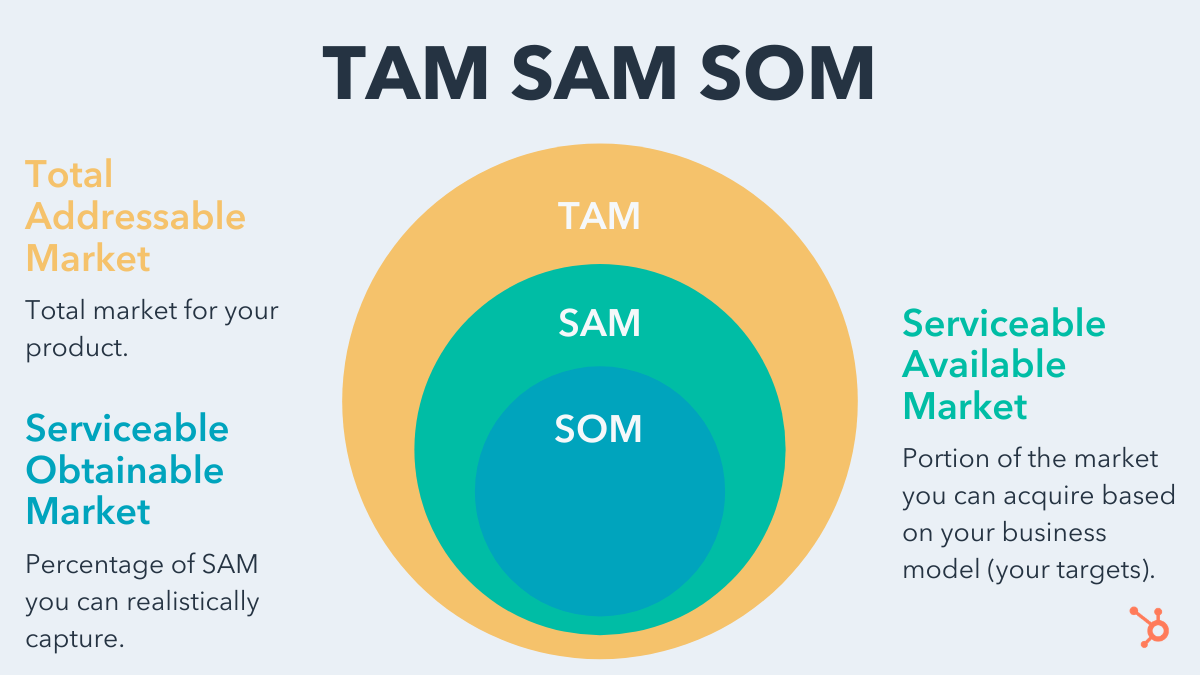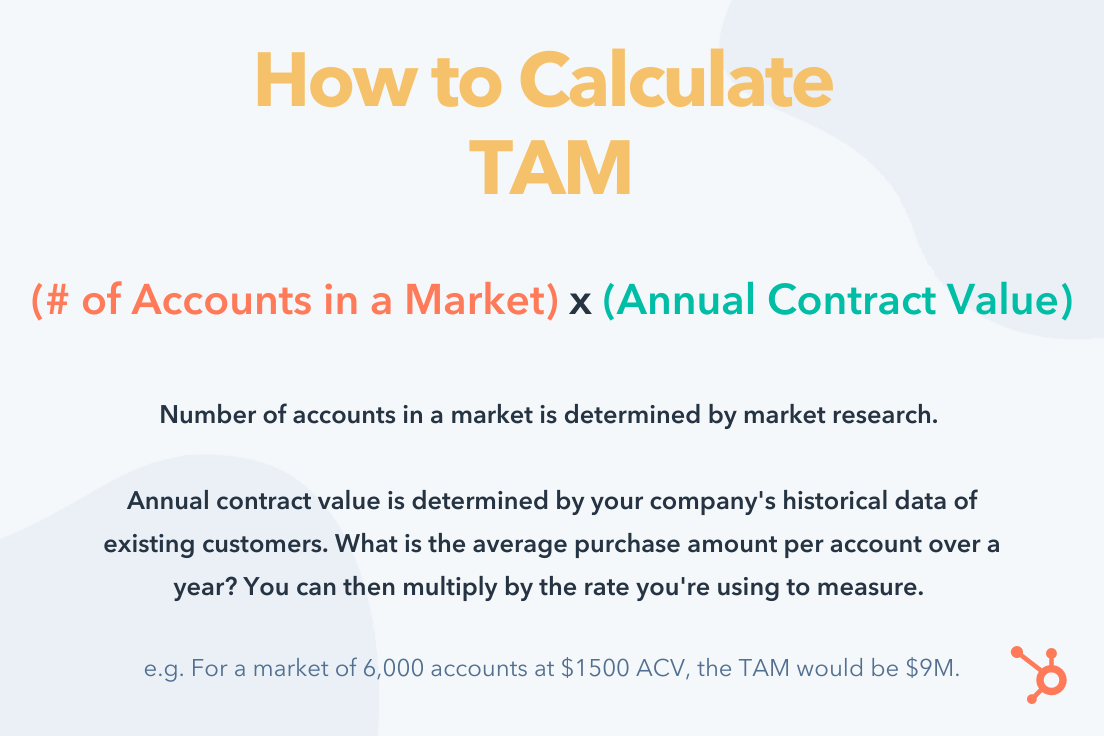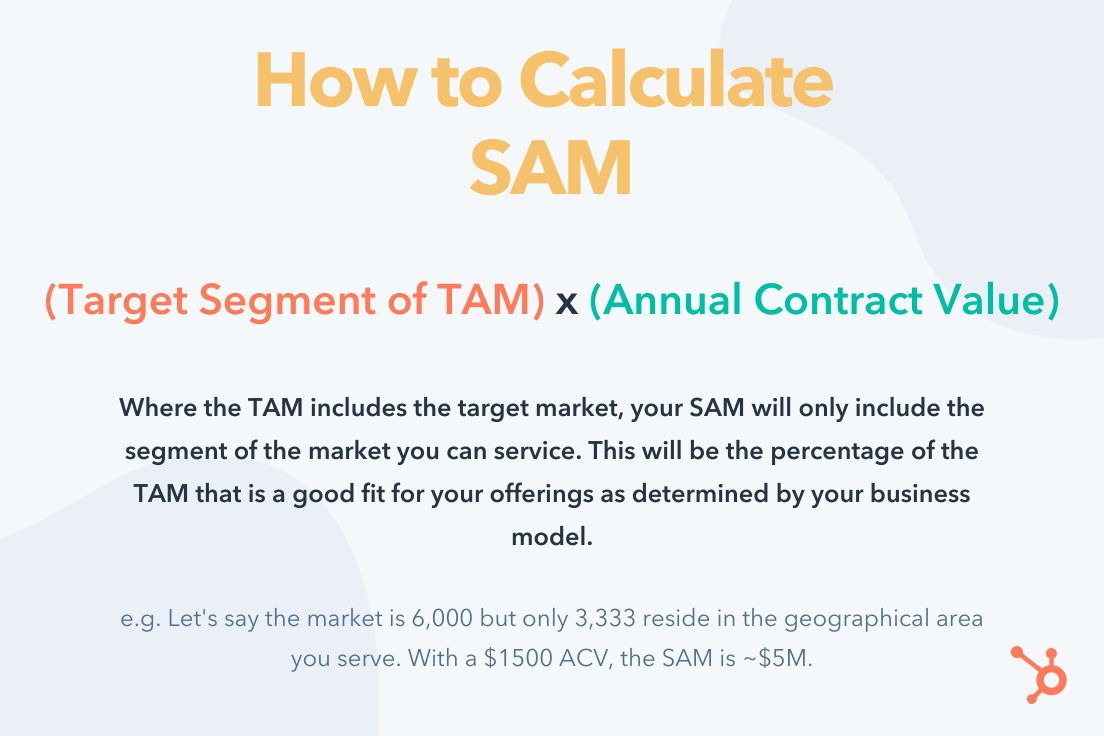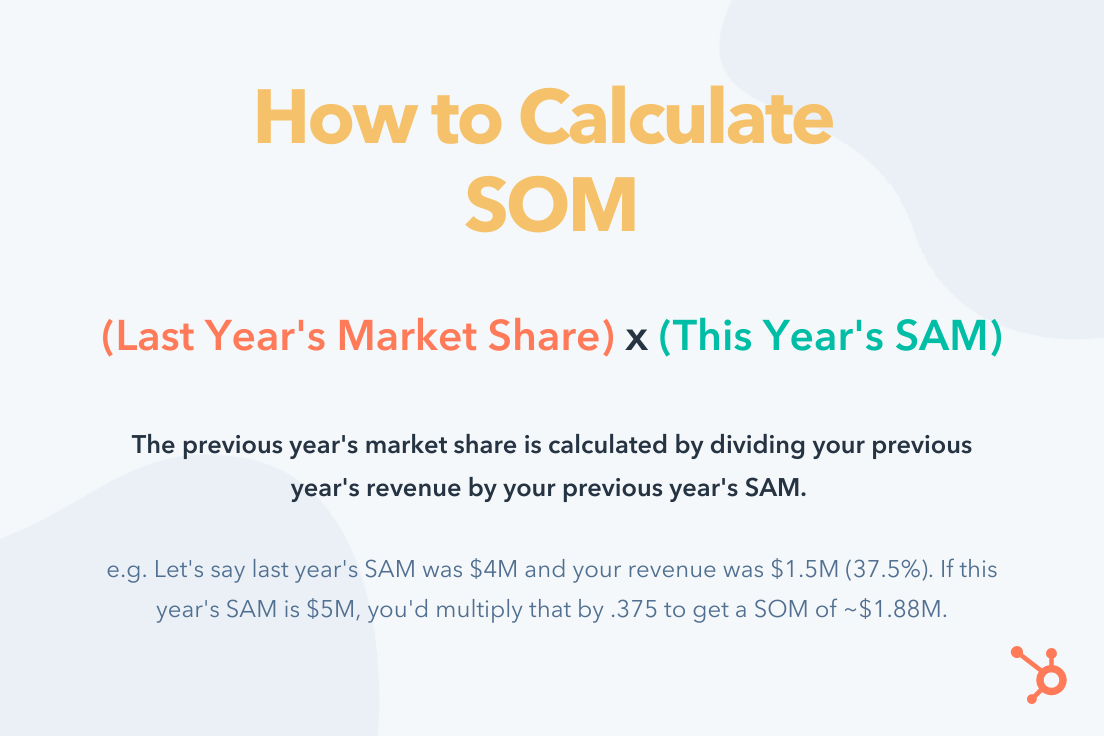With all the excitement that comes with starting a new company and gauging its industry’s profit potential or forecasting a revenue goal for your business, you must remember to root these figures in reality.
If you don’t, you could enter a market that doesn’t have a large enough market size to convince investors to back you, or you could set an unrealistic revenue goal for your business and burn your employees out.
To help you avoid these issues, we’ve put together a guide that’ll teach you exactly how to calculate your industry’s total addressable market, serviceable addressable market, and share of market.
TAM SAM SOM
TAM, SAM, and SOM are acronyms for three metrics to describe the market your organization operates in. These metrics are key components of a business plan, particularly as you craft your marketing and sales strategy, set realistic revenue goals, and choose to enter the markets that are worth your time and resources.

TAM (Total Addressable Market)
Total addressable market or TAM refers to the total market demand for a product or service. It’s the maximum amount of revenue a business can possibly generate by selling their product or service in a specific market.
Total addressable market is most useful for businesses to objectively estimate a specific market’s potential for growth.
SAM (Serviceable Addressable Market)
Due to the limitations of your business model (such as specialization or geographic limitations), you will not likely be able to service your total addressable market.
Serviceable addressable market is most useful for businesses to objectively estimate the portion of the market they can acquire to determine their targets.
SOM (Serviceable Obtainable Market)
Unless you're a monopoly, you most likely can’t capture 100% of your serviceable addressable market. Even if you only have one competitor, it would still be extremely difficult to convince an entire market to only buy your product or service. That’s why it’s crucial to measure your serviceable obtainable market to determine how many customers would realistically benefit from buying your product or service.
Serviceable Obtainable market is most useful for businesses to determine short-term growth targets.
TAM SAM SOM Template
Now that you know what each of these acronyms are and what they're used for, let's get into the nitty gritty on how to calculate TAM, SAM, and SOM. Doing so requires advanced market research ahead of time, but here are the formulas once you're able to obtain those figures:
Total Addressable Market (TAM) Calculation

The best way to calculate total addressable market is by running a bottom-up analysis of an industry. A bottom-up analysis involves counting the total number of customers in a market and multiplying that number by the average annual revenue of each customer in this market.
Serviceable Addressable Market (SAM) Calculation

To calculate your serviceable addressable market, count up all the potential customers that would be a good fit for your business and multiply that number by the average annual revenue of these types of customer in your market.
Serviceable Obtainable Market (SOM) Calculation

Divide your revenue from last year by your industry’s serviceable addressable market from last year. This percentage is your market share from last year. Then, multiply your market share from last year by your industry’s serviceable addressable market from this year.
Keep in mind that these figures will largely be estimates to inform your strategy. The more market research you do and the more historical data you build up, the more precise your planning will be.
Editor's note: This post was originally published in March 2019 and has been updated for comprehensiveness.
from Marketing https://ift.tt/2TrSBsU
via
![→ Download Now: Market Research Templates [Free Kit]](https://no-cache.hubspot.com/cta/default/53/6ba52ce7-bb69-4b63-965b-4ea21ba905da.png)

No comments:
Post a Comment